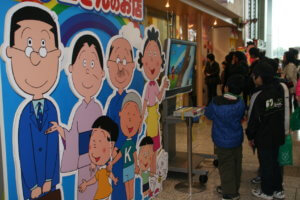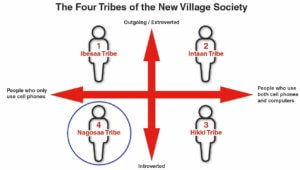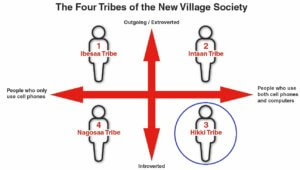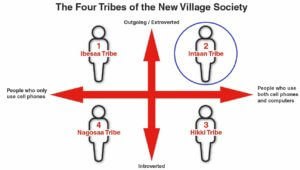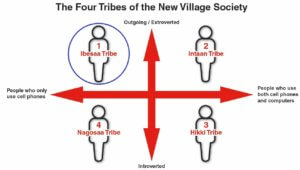What do car drivers want their passengers to do in Japan?
If you live or work in Japan, you may sit in a car together. What do Japanese drivers expect from their passengers when they are in the same car? If your Japanese colleague is driving a car, he or she will be pleased if you do the following! What do car drivers want their passengers […]
Old Game Machines Are Back in Business in Japan
These machines once stood in front of friendly candy shops, familiarly called “dagashiya” in Japanese, found near schools in every neighborhood in Japan. Thirty years later, they have been replaced entirely by smart phone games, Nintendo or PlayStation, etc. But this museum of old game machines pulls in a steady stream of locals, young and […]
Japanese Job Interview -- (7) Japan's Job Interview Q&A
(7) Japanese Job Interview – Q&A You may be asked various questions other than self-introduction and reason for applying. "Please tell me your weak points and strong points." "Have you ever failed at work?" and "What do you want to do at work after 10 years?" are common questions. Even if you have unexpected questions, […]
You Have to Be a Good Listener As a Worker in Japan
You Have to Be a Good Listener As a Worker in Japan Non-Japanese people often say Japanese are good listeners. The Japanese have an expression, “Hear one, understand 10.” In other words, listen carefully for both what is said and what is not said. The Japanese are masters at reading between the lines. Early in […]
Perseverance Is Required: You Are Expected to be Focused at Work in Any Circumstance in Japan
Perseverance Is Required: You Are Expected to be Focused at Work in Any Circumstance in Japan If you have spent any time in Japan, you know how distracting everyday life can be. One is bombarded with other people’s noise from morning to night—on the trains, over loud speakers in public areas, and even at home […]
What is Sazae-san Syndrome?
What is Sazae-san Syndrome? How is it related to Japanese business community? Unknown to the World Is Japan’s Most Popular Anime for More Than 50 Years Sunday night in Japan is “Sazae-san syndrome” time. The country’s longest running television animation (see the official site of Sazae-san), this family comedy has occupied the prime time between […]
Japanese Youth Type (4): "Nagosaa Tribe"
Japanese Youth Type (4): "Nagosaa Tribe" Only believing what they hear from their inner circle (nagosaa tribe) Members of the tribe in the fourth quadrant have the most serious problems in this new village society. They only use cell phones, they have introverted personalities, their network is small, they are barely aware of what cell […]
Japanese Youth Type (3): "Hikki Tribe"
Japanese Youth Type (3): "Hikki Tribe" A tendency to withdraw (hikki tribe) Members of the tribe in the third quadrant are introverted, with strong computer skills. With an image of having been beaten down by adults and mass communication, withdrawing into their own homes or rooms, and doing nothing but use their computers, they have […]
Japanese Youth Type (2): "Intaan Tribe"
Japanese Youth Type (2): "Intaan Tribe" Connecting across generations and geography (intaan tribe) Members of the tribe in the second quadrant are the most promising youths in the new village society. They have strong computer skills, their information is both plentiful and diverse, and they are outgoing, mixing with many other ethnic groups. This group […]
Japanese Youth Type (1): "Ibesaa Tribe"
Japanese Youth Type (1): "Ibesaa Tribe" According to Youhei Harada, researcher of Hakuhodo Institute ofLife & Living, along the vertical axis, youth are divided into “outgoing/extroverted” and “introverted.” Along the horizontal axis, they are divided into “people who only use cell phones” and “people who (are able to) use both cell phones and computers.” Many […]






